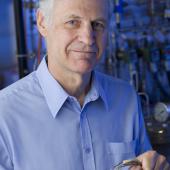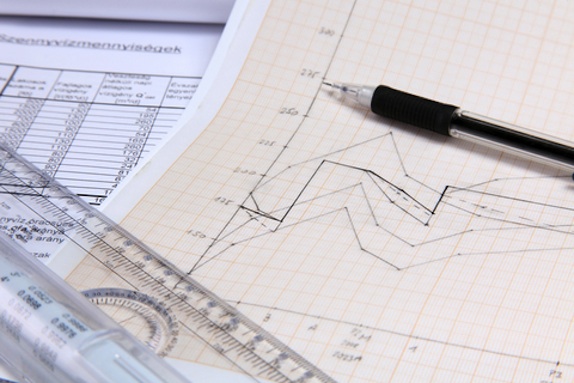
Dr. John R. Grace, Emeritus Professor, Department of Chemical and Biological Engineering, University of British Columbia, will be presenting the IACChE's James Y. Oldshue Lecture, November 10, 2015.
This lecture was jointly established, in 2008, in memory of James Y. Oldshue by the American Institute of Chemical Engineers (AIChE) and the Interamerican Confederation of Chemical Engineering (CIIQ/IACChE). Jim Oldshue was an important leader and supporter of the CIIQ/IACChE. He was President of the AIChE in 1979 and President of the CIIQ/IACChE in 1995. Jim was a recipient of the prestigious Víctor Márquez award in 1983, which is conferred by the CIIQ/IACChE. Jim was an ambassador of the profession who visited more than 100 countries. It is envisioned that this lecture provide a global perspective of a specific contingent topic. The Oldshue Lecture alternates between the AIChE Annual Meetings and the Interamerican Congresses, which take place every two years.
The following is a list of distinguished Jim Oldshue Lecture speakers:
- Mr. Carlos Cabrera; President & CEO, UOP; AIChE Centennial and XXIII Interamerican Congress of Chemical Engineering; Philadelphia, PA, USA (2008)
- Dr. Arthur W. Etchells III, Principal, AWE3 Enterprises; 8th World Congress and XXIV Interamerican Congress of Chemical Engineering; Montreal, QC, Canada (2009)
- Dr. Esteban Alberto Brignole; Professor of Chemical Engineering at Universidad Nacional del Sur, Bahía Blanca, Argentina, and Senior Researcher of the Argentina’s National Research Council of Science and Technology (CONICET); 2010 Annual Meeting, American Institute of Chemical Engineers; Salt Lake City, UT, USA (2010)
- Dr. Eduardo Falabella Sousa-Aguiar; Senior Consultant, Leopoldo Américo Miguêz de Mello R&D Center, Adjunct Professor at Universidade Federal do Rio de Janeiro, Brazil, Consultant at the International Centre for Science and High Technology; XXVI Interamerican Congress of Chemical Engineering; Montevideo, Uruguay (2012)
- Dr. Carlos R. Apesteguía, Professor, National University of Litoral (UNL), School of Chemical Engineering (FIQ). Member of the CONICET's Research Staff, Institute of Research on Catalysis and Petrochemistry (INCAPE), Santa Fe, Argentina. 2013 Annual Meeting, American Institute of Chemical Engineers; San Francisco, CA, USA (2013)
- Dr. Ignacio Grossmann, Rudolph R. and Florence Dean University Professor, Carnegie Mellon University; XXVII Interamerican Congress of Chemical Engineering; Cartagena, Colombia (2014)
Program:
| 8:30 AM | Welcoming Remarks, L. Antonio Estévez |
| 8:33 AM | James Y. Oldshue: Life and Legacy. Lecture Series Description, L. Antonio Estévez |
| 8:43 AM | Speaker Introduction, L. Antonio Estévez |
| 8:45 AM | James Y. Oldshue Lecture: Validation of Models and Procedures in Chemical Engineering, John R. Grace |
| 9:40 AM | James Y. Oldshue Lecture Award Presentation |
| 9:50 AM | Adjourn |
Validation of Models and Procedures in Chemical Engineering
John R. Grace, Department of Chemical and Biological Engineering, University of British Columbia.
In recent years, the term “validation” has become extremely widespread among researchers working in the worldwide chemical engineering community. It is applied to a wide range of models and procedures in an effort to convince the reader that the work and the approach adopted are of value, as well as to justify extensive description of the model details and continued effort. However, the word “validation” should convey the meaning of establishing not just value, but validity, based on objective criteria which include testing over a wide range of variable space over which the model is intended to be applied. It should require agreement within objective criteria based, among other factors, on experimental errors, where the experimentation has been conducted independently and, wherever possible, based on different techniques and carried out by several independent research groups. Parameter fitting, where applicable, should not have been based on the data used to test the degree of agreement.
Widespread misuse has rendered the terms “validation” and “validated” almost meaningless. At a time when chemical engineers are, more than ever, needed to provide input and perspective on key global issues like climate change, water resources and food resources, it is important that we have objective ways of assessing the validity of models and other tools. Based on his experience as both a modeler and an experimentalist working in several different areas of chemical engineering, several questions will be considered: 1. When, if ever, is it justified and permissible to say that a model has been validated? 2. Are qualifiers needed when the words validation and validated are used? 3. What terminology should be applied in cases where validation cannot be established? 4. How do we persuade graduate students and their supervisors to exercise more care and rigor in applying these terms?
Upcoming Lectures
- 2017 Annual Meeting, American Institute of Chemical Engineers; Minneapolis, MN, USA (2017)
- XXIX Interamerican Congress of Chemical Engineering and 68th Canadian Conference of Chemical Engineering; Toronto, Canada (2018)
- 2019 Annual Meeting, American Institute of Chemical Engineers; Orlando, FL, USA (2019)
- 2020 Annual Meeting, American Institute of Chemical Engineers; San Francisco, CA, USA (2020)
- 11th World Congress of Chemical Engineering, XXX Interamerican Congress of Chemical Engineering, and X Congreso Argentino de Ingenería Química, Buenso Aires, Argentina, (2021)

